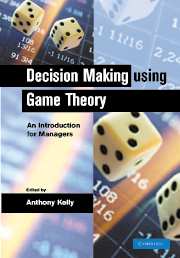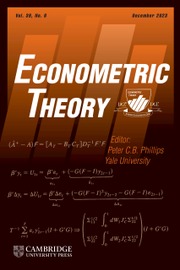Decision Making Using Game Theory
Game theory is a key element in most decision making processes involving two or more people or organizations. This book explains how game theory can predict the outcome of complex decision making processes, and how it can help to improve negotiation and decision-making skills. It is grounded in well-established theory, yet the wide-ranging international examples used to illustrate its application offer a fresh approach to what is becoming an essential weapon in the armory of the informed manager. The book is accessibly written, explaining in simple terms the underlying mathematics behind games of skill. It analyzes more sophisticated topics such as zero-sum games, mixed-motive games, and multi-person games, coalitions and power. Clear examples and helpful diagrams are used throughout, and the mathematics is kept to a minimum. Written for managers, students and decision-makers in every field.
- Straightforward, compact introduction to game theory for managers
- Assumes only high school mathematics
- Lots of clear examples and figures
Product details
July 2011Paperback
9781107402676
216 pages
244 × 170 × 12 mm
0.35kg
Available
Table of Contents
- Preface
- 1. Introduction
- 2. Games of skill
- 3. Games of chance
- 4. Sequential decision-making and co-operative
- 5. Games of strategy
- 6. Two-person mixed-motive games of strategy
- 7. Repeated games
- 8. Multi-person games, coalitions and power
- 9. A critique of game theory
- Appendix A. Proof of the minimax theorem
- Appendix B. Proof of Bayes' theorem
- Bibliography
- Index.




